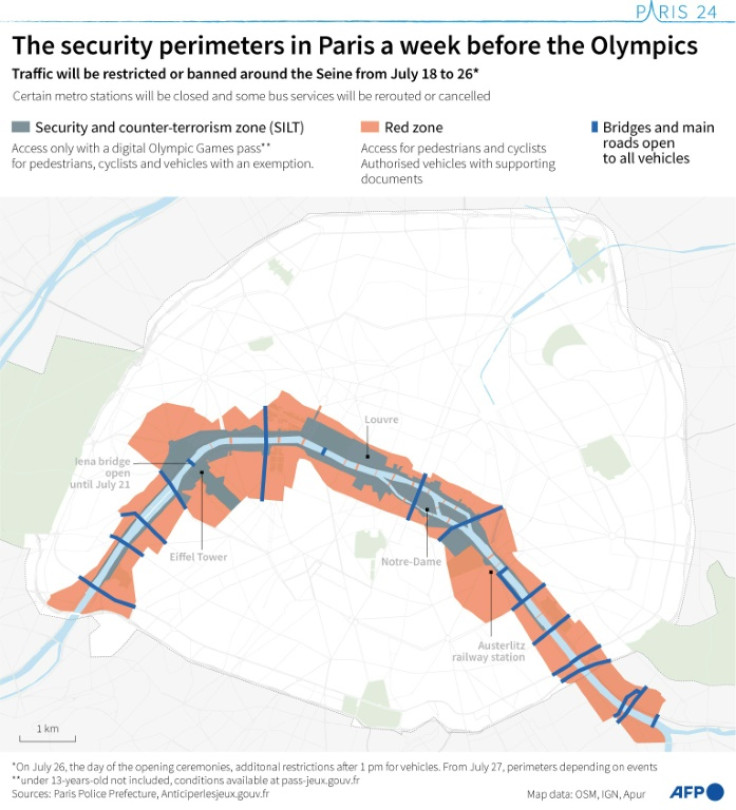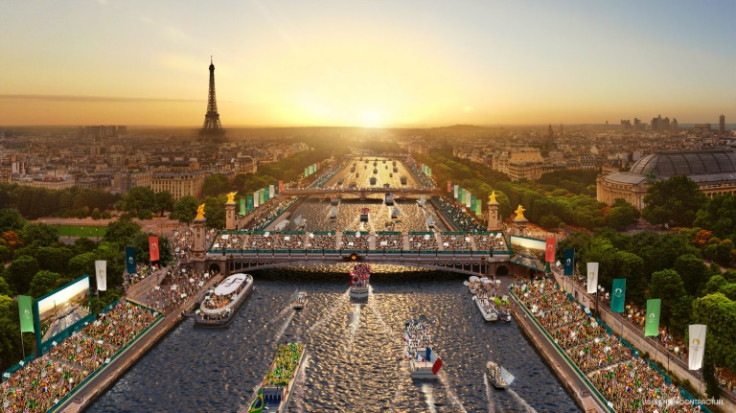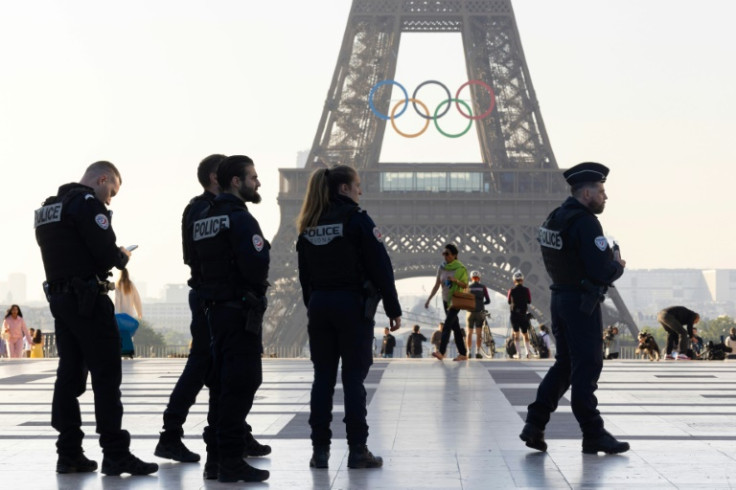
"It's going to be a beautiful success," says Claudine Vacelet confidently of the Paris Olympics opening ceremony, before pausing. "Well, with the security issues, I suppose we'll only see whether it's a success at the end."
After years of planning, the Olympic spotlight is set to finally fall on the French capital on Friday evening at 7:30 pm (1730 GMT), when a wildly ambitious opening parade on the river Seine begins.
Vacelet, 77, a retired orthodontist from southwest Paris, is like many residents who are confident about the artistic flair and ability of France to put on a memorable show, but are also slightly anxious about the outcome.
"But then there are always security issues nowadays. It's the world we live in," she sighed.
The centre of Paris is set to be locked down by 45,000 police and gendarmes, 10,000 soldiers, and around 22,000 private security guards on Friday evening.
The sound of helicopters, sirens, and the ever-present sight of police officers in recent days has given the impression of a capital under siege, hinting at unseen threats in a city that has known numerous attacks over the past decade.
"I hope the games will go well, but I am a bit worried because the world is on fire right now," Sonia Jacob, a 42-year-old mother of three, told AFP in the northeastern 20th district.
The security measures and the vast scale of the opening ceremony -- nearly 7,000 athletes will sail six kilometres (four miles) down the Seine -- have tested the patience and tolerance of many locals.
Most of the bridges and the river banks have been out of bounds for a week and more than 40,000 metal barriers erected along the sailing route have left some residents feeling like they are living behind bars in a zoo.
Restaurants and shop owners are complaining about the impact on their businesses. The city's famously grumpy taxi drivers are on the verge of despair about the traffic and a lack of customers.
And in wealthy areas, many residents let their feelings about the Games known weeks ago by leaving town for holidays.
"It's hard for Parisians at the moment. Crossing the city is a real nightmare," Jaime Castellanos, a 67-year-old painter, told AFP as he finished his shopping in southwest Paris, a short walk from the Seine.
"But in terms of the image of France, I think it'll be positive."
There are gathering signs that after all the grumbling and the complaining this year, all the suspense and performance anxiety ahead of the start, that the city might finally be getting ready to party.
Organisers have constantly stressed that pre-Olympics discontent is predictable and customary.
It was the same for the Games in Sydney in 2000 and in London in 2012, they say -- both of which are now fondly remembered by locals there.
Emelie Harvey, a 26-year-old who works as a florist in the 15th district of the capital, said she was indifferent about the Games until the torch relay came past her boutique at the start of the month.
"You can feel there's excitement building. People love criticising the country, complaining, but I think we're going to make it a success," she told AFP.
"For us young people, it's the first time we've had a major sports event like this."
Jeanne Farret, a 47-year-old French teacher, said she had become accustomed to living with the threat of attacks and would not let it spoil her enjoyment.
"I'm definitely concerned about the risk of terrorism, but no more so than in the past ten years or so," she said.
In a TV interview this week, President Emmanuel Macron urged Parisians to stay upbeat.
"All of us will see from Friday why it was worth the bother," he promised.









